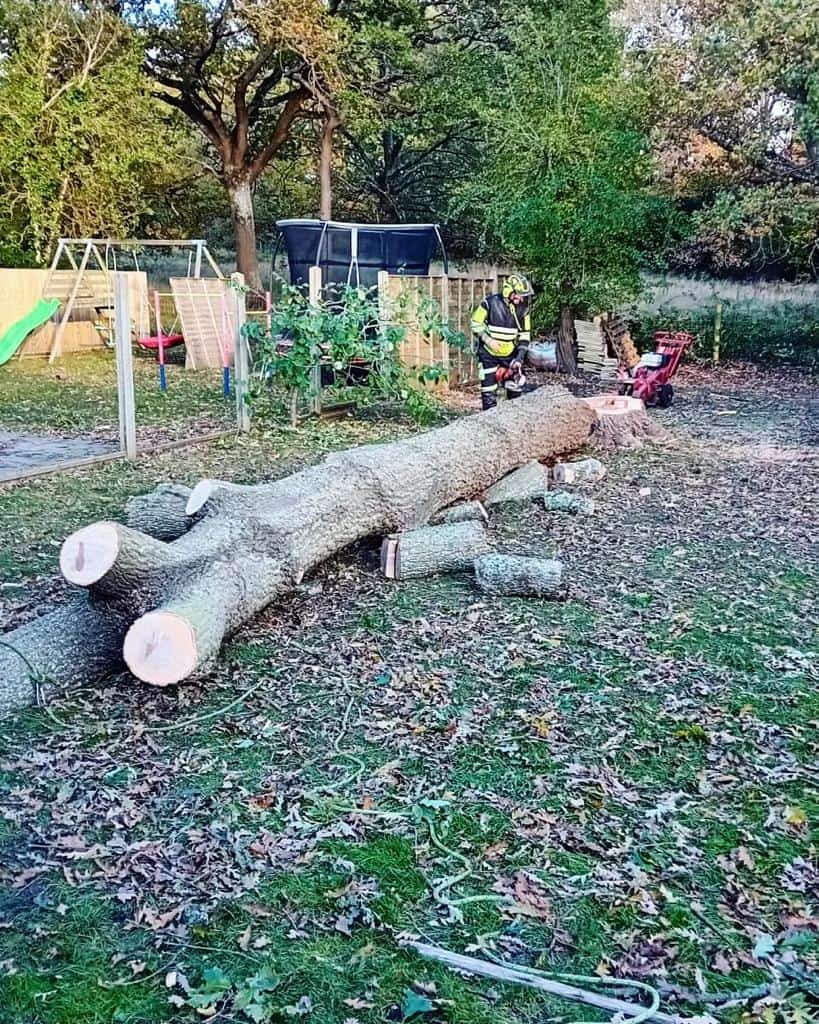Introduction
Hedges are an essential part of many gardens, providing natural boundaries, privacy, and aesthetic appeal. However, when left unmaintained, hedges can quickly become overgrown, leading to a range of issues for homeowners, businesses, and public spaces. Unchecked growth can cause safety hazards, property damage, and even legal disputes if hedges obstruct paths, roads, or neighbouring properties.
For property owners in Bedminster, Bristol, regular hedge cutting is crucial to keeping outdoor spaces tidy, functional, and compliant with regulations. EM Tree Surgery Bedminster provides expert hedge maintenance services, ensuring that overgrowth problems are prevented before they become costly and difficult to manage.
Key Takeaways
- Overgrown hedges can obstruct walkways, roads, and neighbouring properties.
- Lack of maintenance can lead to hedge disease, pest infestations, and weakened plant health.
- Unmanaged hedges reduce kerb appeal and can impact property value.
- Local regulations may require homeowners to trim hedges to avoid public safety risks.
- EM Tree Surgery Bedminster offers professional hedge cutting services in Bedminster, Bristol.
The Problems Caused by Overgrown Hedges
1. Obstruction of Walkways, Roads, and Public Spaces
Hedges that are not regularly trimmed can quickly encroach onto pavements, driveways, and roads, creating hazards for pedestrians and drivers. Common issues include:
- Reduced visibility for motorists at junctions or driveways.
- Obstructed pedestrian pathways, forcing people onto the road.
- Blocked access points to homes, businesses, or public spaces.
In many cases, local councils require property owners to maintain hedges that border public areas to prevent obstructions. Failure to comply could result in enforcement notices or fines.
2. Increased Risk of Pest Infestations
Overgrown hedges provide an ideal environment for pests such as:
- Rats and mice, which use dense foliage for nesting.
- Insects like aphids and caterpillars, which can spread to nearby plants.
- Birds, which may nest in unmanaged hedges, making future trimming more difficult.
Regular hedge cutting helps prevent infestations and ensures that hedges remain healthy and manageable.
3. Weak and Unhealthy Growth
Hedges that are left untrimmed for long periods often develop:
- Dense outer growth that blocks light from reaching inner branches.
- Weak, leggy stems that struggle to support new growth.
- Increased vulnerability to diseases, such as fungal infections or dieback.
Routine trimming promotes even growth, improving the hedge’s shape, strength, and resilience.
4. Reduced Kerb Appeal and Property Value
An overgrown hedge can make an otherwise well-maintained property look untidy and neglected. This can:
- Detract from the overall appearance of a home or business.
- Reduce kerb appeal, affecting property value.
- Give a poor first impression to visitors, customers, or potential buyers.
Well-maintained hedges enhance the aesthetics of any property, creating a welcoming and professional appearance.
5. Potential Legal and Neighbour Disputes
Neglected hedges can lead to disputes with neighbours if they grow beyond property boundaries. Issues may include:
- Encroaching onto neighbouring gardens or driveways.
- Blocking light or views from nearby properties.
- Dropping leaves or debris into adjacent gardens.
In the UK, property owners are responsible for keeping their hedges trimmed and ensuring they do not cause inconvenience or damage to others.
The Benefits of Regular Hedge Cutting
1. Encourages Healthy Growth
Trimming hedges at the right time of year stimulates new growth, keeping them dense and well-formed. Regular pruning also removes dead or diseased branches, reducing the risk of infections spreading through the hedge.
2. Maintains Shape and Structure
Frequent trimming helps hedges maintain a neat, uniform appearance. Without regular cutting, hedges can become misshapen and difficult to restore to their original form.
3. Enhances Security and Privacy
A well-maintained hedge provides effective privacy and security by creating a natural barrier. Overgrown hedges, however, can develop gaps or become too sparse, reducing their effectiveness.
4. Prevents Costly and Difficult Remedial Work
Once a hedge has become severely overgrown, restoring it can be a time-consuming and expensive process. Regular cutting keeps maintenance simple and prevents the need for drastic reductions or full removal.
How Often Should Hedges Be Trimmed?
The frequency of hedge cutting depends on the species and growth rate. General guidelines include:
- Fast-growing hedges (e.g., Leylandii, Privet) – Trimmed 2–3 times per year.
- Medium-growth hedges (e.g., Laurel, Beech, Hornbeam) – Trimmed 1–2 times per year.
- Slow-growing hedges (e.g., Yew, Holly, Boxwood) – Trimmed once per year.
Regular assessments by a professional tree surgeon can help determine the best trimming schedule for each hedge type.
Why Hire a Professional for Hedge Maintenance?
While hedge trimming may seem straightforward, professional services offer several advantages:
1. Expertise and Precision
Professional tree surgeons and hedge specialists have the knowledge and tools to:
- Trim hedges without damaging plant health.
- Create clean, even cuts for an aesthetically pleasing finish.
- Identify and address signs of disease or pest infestations.
2. Safe and Efficient Work
Large or high hedges can be challenging to trim safely. Professionals use specialist equipment, such as ladders, pole trimmers, and safety harnesses, to complete the job efficiently and without risk.
3. Compliance with Local Regulations
Tree surgeons understand local regulations regarding hedge cutting, ensuring compliance with:
- Restrictions on hedge trimming during bird nesting season (March–August).
- Legal requirements for maintaining boundary hedges and preventing obstructions.
- Conservation laws that may apply to specific hedge species.
For residents and businesses in Bedminster, Bristol, EM Tree Surgery Bedminster provides expert hedge maintenance services, keeping outdoor spaces tidy, safe, and legally compliant.
Conclusion
Neglecting hedge cutting can lead to a range of overgrowth issues, including safety hazards, pest infestations, and reduced kerb appeal. Overgrown hedges can block pathways, cause property damage, and even result in legal disputes. Regular hedge maintenance is essential for ensuring healthy growth, maintaining aesthetics, and preventing costly remedial work.
For professional hedge cutting and maintenance services in Bedminster, Bristol, EM Tree Surgery Bedminster offers expert solutions tailored to your property’s needs. Contact us today to keep your hedges in perfect condition all year round.
Call us on: 0117 463 1711
Click here to find out more about EM Tree Surgery Bedminster
Click here to complete our contact form and see how we can help with your tree needs.

